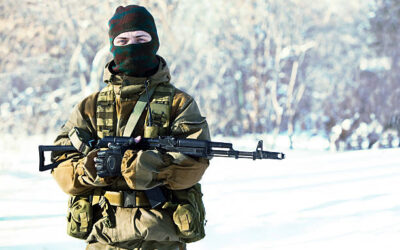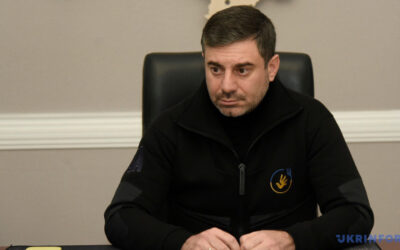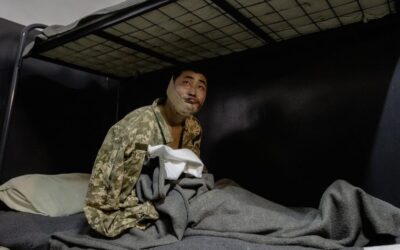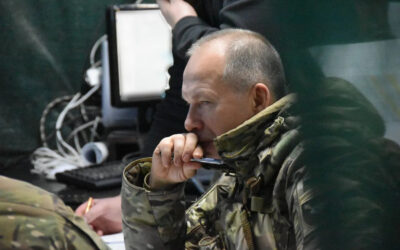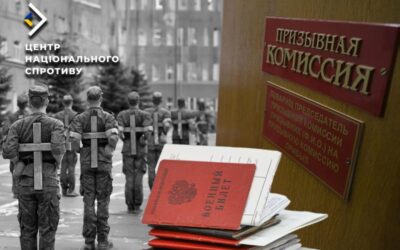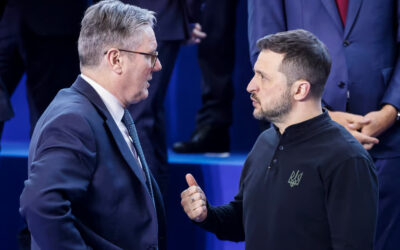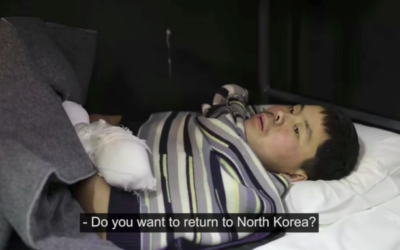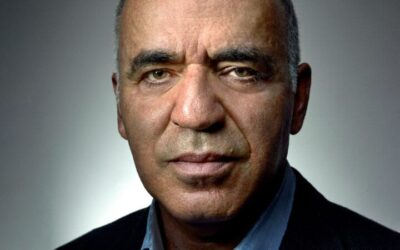Roman Shvartsman, an 88-year-old Holocaust survivor from Odesa, delivered a speech in the Bundestag, expressing gratitude to Germany for its support of Ukraine against Russian aggression and urging for increased assistance, speaking in Ukrainian during a special session.
Russia’s Aging Volgoneft Tankers Expose Deepening Shadow Fleet Risks
Aging Volgoneft tankers repeatedly sailed with expired or invalid documents, delivering hundreds of thousands of tons of fuel oil to Russia’s shadow fleet. Their unsafe voyages, including the December wrecks, expose deep environmental and sanctions-evasion risks.
Russia Targets Civilians for Forced Conscription in Kherson
Russian forces in occupied Kherson are targeting orphans, isolated residents, and children of disabled parents for forced conscription, exploiting those least able to resist. Activists warn this unlawful strategy highlights ongoing abuses that will end only with deoccupation.
Systematic Executions of Ukrainian POWs Highlight Russia’s Brutality
A new video appears to show Russian troops executing six unarmed Ukrainian POWs in Donetsk, prompting a war crimes investigation. Officials say the footage reflects a growing pattern of systematic abuses and are urging international bodies to ensure accountability.
North Korea is Using Russia’s Ukraine Invasion to Upgrade its Army
Pyongyang has a very specific interest in sending troops to fight against Ukraine. While the deployment is unlikely to dramatically alter the battlefield situation in the Kremlin’s favor, it allows the North Koreans to acquire priceless combat experience and test weapons systems.
Russian Ammunition Halved Following Ukrainian Strikes
The reduction in Russian artillery ammunition usage, as highlighted by Commander-in-Chief Syrskyi, underscores the impact of Ukraine’s strikes on Russian military supply chains with daily usage reportedly declining from around 40,000 rounds to much lower levels.
Fines for Students Failing to Appear at Military Commissariats
In the temporarily occupied territories, Russian forces continue conscription efforts, targeting final-year students with fines of up to 200,000 rubles or threats of 2 years of forced labor for refusing service. Such actions violate international law, which prohibits conscription.
Russia Strikes Kyiv as UK’s Starmer Arrives to Sign 100-Year Treaty
Russian drones targeted central Kyiv, where British Prime Minister Keir Starmer was holding talks with Ukrainian President Volodymyr Zelenskyy. At least 1 drone was shot down, with debris destroying a car not far from the Mariinsky Palace, the President’s official residence.
Zelenskyy Shares Footage of North Korean POWs Being Interrogated
Ukrainian President Volodymyr Zelenskyy shared a video of the interrogation of the North Korean POWs, who were captured in the Kursk Oblast and stated that Ukraine is ready to return them to their home country as part of a prisoner exchange with Russia.
Dollars and Sense: America’s Interest in a Ukrainian Victory
Supporting Ukraine to victory against Russia is in the best interest of the US. A world in which Russia prevails would be more dangerous and more expensive, requiring an estimated increase of $808 billion in defense spending through 2029 – American Enterprise Institute.
Interview with Garry Kasparov, a Russian Chess Grandmaster
What’s tragic is that even now, after so much blood has been spilled, there are still people in the free world trying to find some kind of compromise or middle ground to return to. What they fail to recognize is that you cannot negotiate with this kind of evil for a simple reason: Putin.
U.S. Was Alerted to Russia’s Potential Nuclear Threats
In the wake of Ukraine’s 2022 counteroffensive, it became evident that the U.S. was alerted to Russia’s potential nuclear threats, significantly altering the geopolitical landscape. This pivotal moment revealed a shift in Russian military doctrine.



